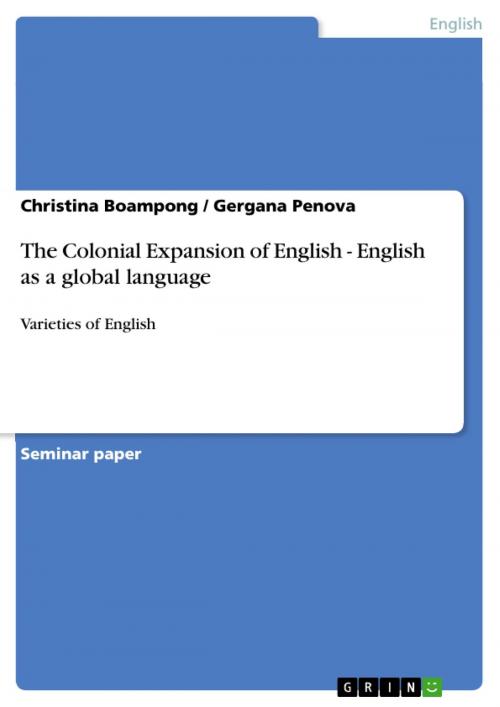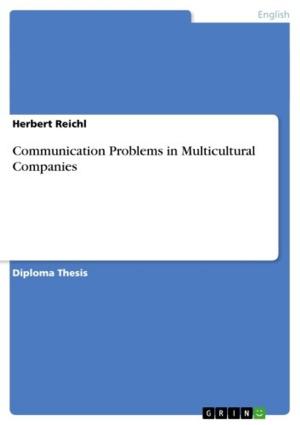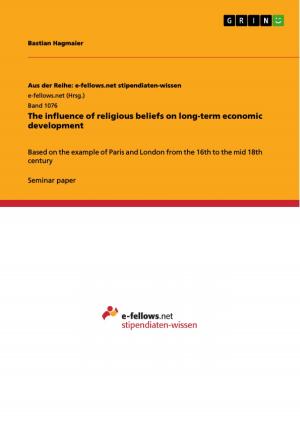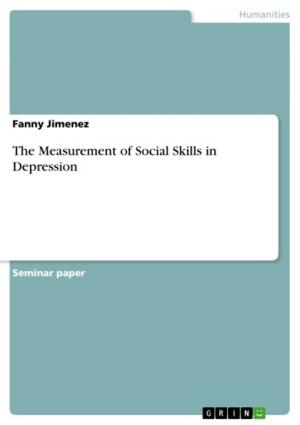The Colonial Expansion of English - English as a global language
Varieties of English
Nonfiction, Entertainment, Drama, Anthologies| Author: | Christina Boampong, Gergana Penova | ISBN: | 9783640556014 |
| Publisher: | GRIN Publishing | Publication: | March 5, 2010 |
| Imprint: | GRIN Publishing | Language: | English |
| Author: | Christina Boampong, Gergana Penova |
| ISBN: | 9783640556014 |
| Publisher: | GRIN Publishing |
| Publication: | March 5, 2010 |
| Imprint: | GRIN Publishing |
| Language: | English |
Seminar paper from the year 2005 in the subject English Language and Literature Studies - Linguistics, grade: 1,3, University of Lüneburg (Anglistik/Amerikanistik), course: History of English and English historical linguistics, language: English, abstract: English is the language of commerce and tourism, of international politics, of science, the official language of international and multinational companies and industries, the language of air traffic control, of international news agencies, of mass entertainment, of computers and of the Internet. It is assumed that about a quarter of the world`s population is already fluent or competent in English (that means around 1,5 billion people) and that there is a total of 75 territories where English has a special place in society. These regions can be divided according to the status they give English: Either they have English as a native language, as a second or official language or as a foreign language. This classification is visualized by the so-called Three-circle-model: The inner circle compromises those countries where English is the primary language of communication and is learnt as a native language by the majority of the population. It includes the United States, the United Kingdom, Ireland, Canada, Australia and New Zealand. The outer or extended circle represents the countries where English plays an important role in a non-native setting. In many cases these are former British colonies where the English language is part of the countries leading institutions and of various other domains. This circle includes India, Malawi, Singapore and 50 other territories. The expanding circle involves those countries in which English is learnt as a lingua franca by many people. These countries neither have a history of colonization nor have they given English any administrative status. Such countries are Germany, Japan, Israel and a growing number of other states. Fennel (2004) divides the global spreading of English that has lead to its status as a world language into four phases: I.British colonialism from the seventeenth to the twentieth century II.British leadership in the Industrial Revolution in the eighteenth and nineteenth centuries III.American economic superiority and political leadership IV.American technological domination In what follows we will focus on the first phase: The colonial expansion of English, which also marks the beginning of the Modern English period. The main idea of this term paper is to introduce the most popular varieties of English around the world and to familiarize with the historical facts and development of these countries emphasizing on the specific linguistic characteristics.
Seminar paper from the year 2005 in the subject English Language and Literature Studies - Linguistics, grade: 1,3, University of Lüneburg (Anglistik/Amerikanistik), course: History of English and English historical linguistics, language: English, abstract: English is the language of commerce and tourism, of international politics, of science, the official language of international and multinational companies and industries, the language of air traffic control, of international news agencies, of mass entertainment, of computers and of the Internet. It is assumed that about a quarter of the world`s population is already fluent or competent in English (that means around 1,5 billion people) and that there is a total of 75 territories where English has a special place in society. These regions can be divided according to the status they give English: Either they have English as a native language, as a second or official language or as a foreign language. This classification is visualized by the so-called Three-circle-model: The inner circle compromises those countries where English is the primary language of communication and is learnt as a native language by the majority of the population. It includes the United States, the United Kingdom, Ireland, Canada, Australia and New Zealand. The outer or extended circle represents the countries where English plays an important role in a non-native setting. In many cases these are former British colonies where the English language is part of the countries leading institutions and of various other domains. This circle includes India, Malawi, Singapore and 50 other territories. The expanding circle involves those countries in which English is learnt as a lingua franca by many people. These countries neither have a history of colonization nor have they given English any administrative status. Such countries are Germany, Japan, Israel and a growing number of other states. Fennel (2004) divides the global spreading of English that has lead to its status as a world language into four phases: I.British colonialism from the seventeenth to the twentieth century II.British leadership in the Industrial Revolution in the eighteenth and nineteenth centuries III.American economic superiority and political leadership IV.American technological domination In what follows we will focus on the first phase: The colonial expansion of English, which also marks the beginning of the Modern English period. The main idea of this term paper is to introduce the most popular varieties of English around the world and to familiarize with the historical facts and development of these countries emphasizing on the specific linguistic characteristics.















